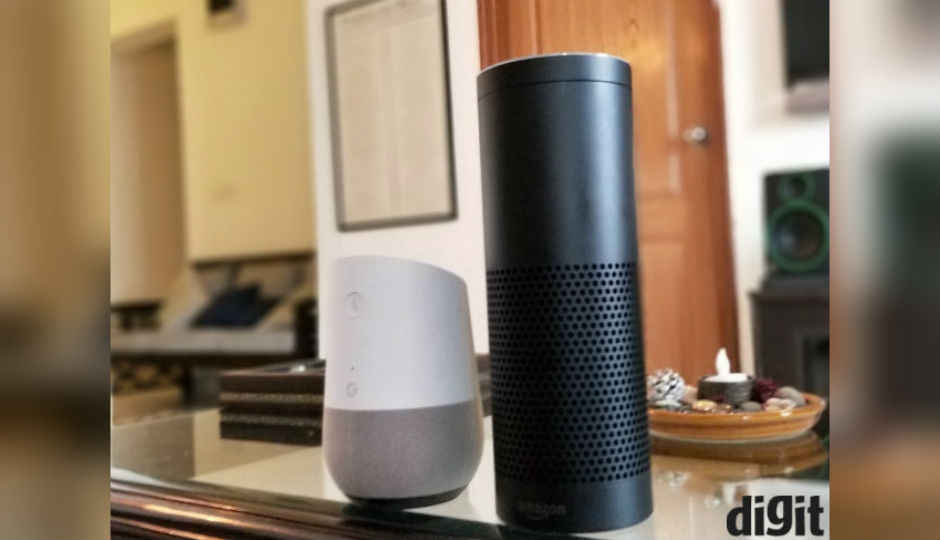 Highlights: There is 72 percent smart speaker adoption in India of the 1000 consumers surveyed. A whopping 97 percent Indian consumers are satisfied with the technology. Privacy and security concerns are impediment to technology adoption. Half of online consumers globally now use digital voice assistants, led by emerging markets such as India with 72 percent adoption, Dublin-based management consulting company Accenture has noted in a research report. It also claims that the standalone voice assistants – or smart speakers – have a 97 percent satisfaction rate among Indian consumers. The report titled, “Reshape to Relevance,” is based on a global survey of 22,500 consumers across 21 countries, including 1,000 Indian consumers. “With increasing adoption and satisfaction levels of smart speaker technology in India, we will see digital voice assistants influencing the whole consumer technology and service ecosystem in a way that no other device, including smartphones, has done before. As consumers shift behaviours from smartphones to voice assistants, there’s a clear expectation that smart speakers will take on progressively complex workloads in the future,” said Aditya Chaudhuri, Managing Director and lead in Accenture’s Communications, Media & Technology practice in India. According to the report, 96 percent of Indian consumers expect their home device purchases, such as smart TVs or computers, to be based on ease of integration with their standalone smart speaker. The relevance of smart speakers is reflected in consumers’ expectations to use them for tasks like voice calling, playing music or eBooks, and accessing news, the report said talking about Indian user behaviour. Globally, consumers see value in voice assistants for managing their home security (61 percent of respondents), providing connected home automation (59 percent), paying bills and providing payment alerts (55 percent). Not only these, they expect their voice assistants to make restaurant reservations (53 percent) and providing access to virtual medical advice (52 percent). As expected, trust is a hindrance in the greater adoption of smart speakers with 41 percent of consumers (globally) citing privacy concerns and 40 percent citing security concerns with the technology as their reason to not to use the technology. The report says that 46 percent of consumers globally believe they don’t have control of their data with voice assistants and 58 percent are more likely to re-evaluate their trust in this service by continually checking how their information is being used. Related Read: Zero1 Awards 2018 - Audio - Smart Speakers Amazon Echo pips Google Home to regain top spot in smart speaker market in Q3 2018
Highlights: There is 72 percent smart speaker adoption in India of the 1000 consumers surveyed. A whopping 97 percent Indian consumers are satisfied with the technology. Privacy and security concerns are impediment to technology adoption. Half of online consumers globally now use digital voice assistants, led by emerging markets such as India with 72 percent adoption, Dublin-based management consulting company Accenture has noted in a research report. It also claims that the standalone voice assistants – or smart speakers – have a 97 percent satisfaction rate among Indian consumers. The report titled, “Reshape to Relevance,” is based on a global survey of 22,500 consumers across 21 countries, including 1,000 Indian consumers. “With increasing adoption and satisfaction levels of smart speaker technology in India, we will see digital voice assistants influencing the whole consumer technology and service ecosystem in a way that no other device, including smartphones, has done before. As consumers shift behaviours from smartphones to voice assistants, there’s a clear expectation that smart speakers will take on progressively complex workloads in the future,” said Aditya Chaudhuri, Managing Director and lead in Accenture’s Communications, Media & Technology practice in India. According to the report, 96 percent of Indian consumers expect their home device purchases, such as smart TVs or computers, to be based on ease of integration with their standalone smart speaker. The relevance of smart speakers is reflected in consumers’ expectations to use them for tasks like voice calling, playing music or eBooks, and accessing news, the report said talking about Indian user behaviour. Globally, consumers see value in voice assistants for managing their home security (61 percent of respondents), providing connected home automation (59 percent), paying bills and providing payment alerts (55 percent). Not only these, they expect their voice assistants to make restaurant reservations (53 percent) and providing access to virtual medical advice (52 percent). As expected, trust is a hindrance in the greater adoption of smart speakers with 41 percent of consumers (globally) citing privacy concerns and 40 percent citing security concerns with the technology as their reason to not to use the technology. The report says that 46 percent of consumers globally believe they don’t have control of their data with voice assistants and 58 percent are more likely to re-evaluate their trust in this service by continually checking how their information is being used. Related Read: Zero1 Awards 2018 - Audio - Smart Speakers Amazon Echo pips Google Home to regain top spot in smart speaker market in Q3 2018from Latest Technology News http://bit.ly/2LYREGu









